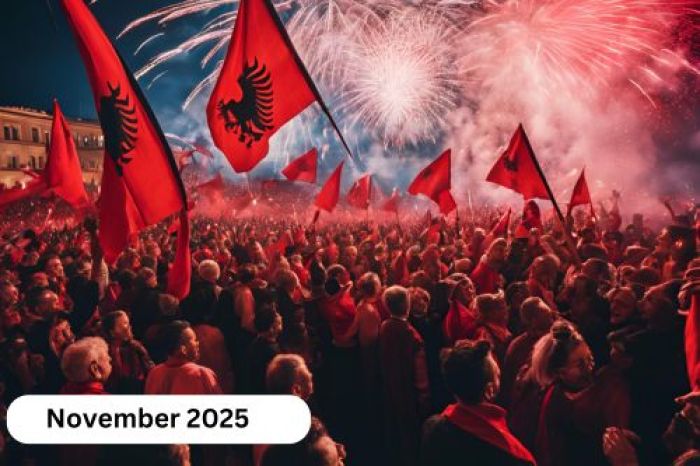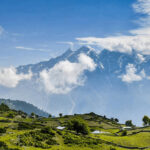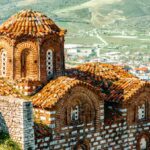
Introduction
Overview of Albania
Nestled along the Adriatic and Ionian Seas, Albania is a hidden gem in the Balkan Peninsula, boasting a rich tapestry of history and culture. Its picturesque landscapes range from stunning coastlines to majestic mountains, providing a perfect backdrop for authentic experiences. Though small, Albania’s unique blend of influences shapes its vibrant character.
Significance of Albanian Traditions and Customs
Albanian <a href="https://ariatravels.com/a-mosaic-of-traditions-experiencing-the-diversity-of-albanias-cultural-heritage/”>traditions and customs serve as the backbone of its cultural identity, reflecting the nation’s storied past. They are essential for:
- Community Bonding: Encouraging social interactions and shared values.
- Cultural Preservation: Maintaining unique practices that have stood the test of time.
- Diverse Influence: Offering a glimpse into various historical experiences, enhancing tourists’ understanding of the area.
These customs invite visitors to experience the warm hospitality and profound heritage of the Albanian people.
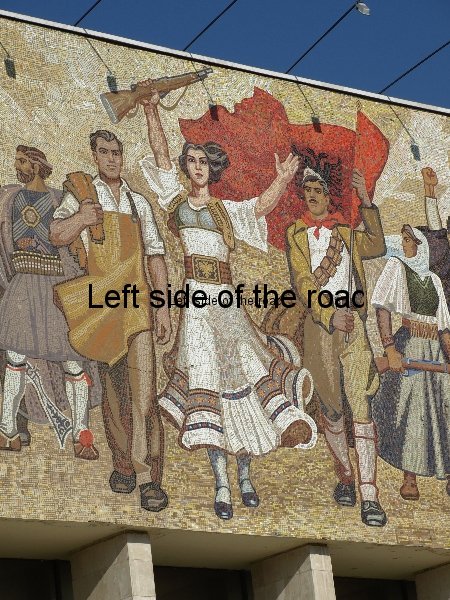
Albania: A Cultural Mosaic
Historical Influences on Albanian Culture
Throughout centuries, Albania has been a crossroads of various civilizations, which significantly shaped its culture. From Illyrian tribes to Ottoman influences, each era added layers to the nation’s cultural fabric. This amalgamation is evident in language, architecture, and art forms.
Regional Variances in Albanian Traditions
Albania’s geography fosters diverse regional traditions. For instance:
- Northern Albania: Renowned for its folk dances and polyphonic music.
- Southern Albania: Known for its unique culinary delights and vibrant festivals.
These differences highlight the rich variety within the nation, inviting exploration and appreciation.
Impact of Cultural Diversity
This cultural mosaic enhances Albania’s appeal, making it a fascinating destination for tourists. The confluence of customs enriches everyday life, allowing Albanians to celebrate their multifaceted identity. As someone who visited a local festival, I was captivated by how traditions come alive through shared stories and communal spirit, reinforcing the bonds within Albanian society.
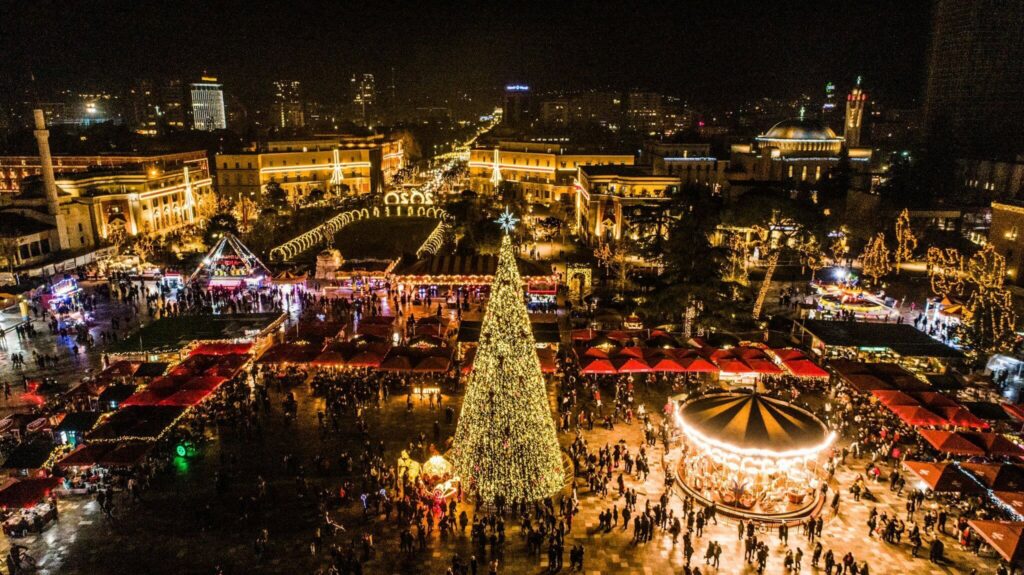
Festive Celebrations in Albania
Traditional Albanian Festivals and Holidays
Celebrations in Albania are vibrant and steeped in history, with numerous festivals showcasing the nation’s rich heritage. Notable festivities include:
- Dita e Verës (Summer Day): Celebrated on March 14, marking the arrival of spring with public festivities and traditional food.
- Gjirokastër National Folklore Festival: A biennial event demonstrating the best of Albanian music, dance, and crafts.
These events bring communities together, highlighting the beauty of Albanian culture.
Customs and Rituals During Special Occasions
Every holiday in Albania is accompanied by unique customs that add to the festive atmosphere. For example, during weddings, the bride often wears a traditional white dress, symbolizing purity. Guests participate in joyful dancing, culminating in a lively celebration filled with laughter and music. Such moments remind everyone of the importance of family ties and community spirit, bringing to life the essence of Albanian culture.
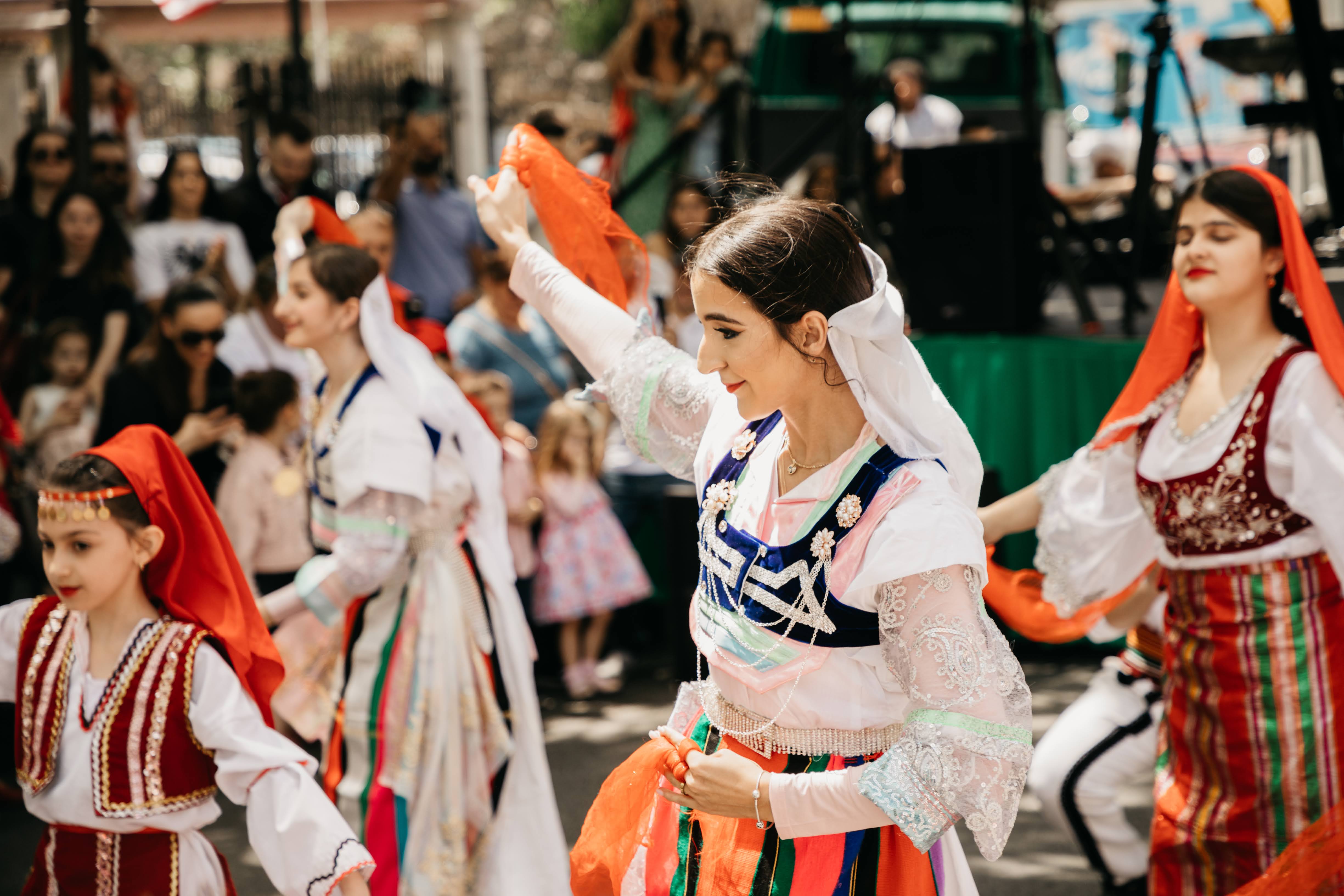
Albanian Cuisine and Dining Traditions
Popular Albanian Dishes
Albanian cuisine is a delightful mixture of Mediterranean and Balkan flavors, showcasing a range of delicious dishes. Some must-try favorites include:
- Fërgesë: A rich dish made with peppers, tomatoes, and cheese.
- Byrek: A savory pastry filled with cheese, spinach, or meat.
- Tavë Kosi: Baked lamb with yogurt, an iconic comfort food.
Each dish is steeped in tradition and reflects local ingredients.
Etiquette and Traditions at Albanian Meals
Dining in Albania is a communal experience filled with warmth and hospitality. Guests are often greeted with:
- Fresh bread and raki (a traditional alcoholic drink).
- An abundance of food on the table, showcasing the host’s generosity.
It’s customary to finish everything on your plate as a sign of respect. During my visit, sharing meals with locals truly illustrated how food serves as a connection among people, celebrating both culture and togetherness.

Albanian Arts and Crafts
Traditional Albanian Handicrafts
Albania’s artistic heritage is rich with traditional handicrafts that reflect its culture and history. Some of the most cherished arts include:
- Embroidery: Intricate designs that adorn traditional clothing.
- Pottery: Handcrafted items, particularly from the city of Durrës, showcasing unique designs.
- Weaving: Beautifully woven carpets and rugs that tell stories through patterns.
These crafts are not only artistic expressions but also a means of preserving Albanian heritage.
Folk Music and Dance of Albania
Equally vibrant is Albania’s folk music and dance, integral to their cultural identity. Traditional music often features:
- Polyphonic singing: A UNESCO-recognized art form unique to Albania.
- Instruments like the çifteli and lahuta: Enhancing the depth of performances.
During a local festival, I was enchanted by the passionate folk dances, where community members joined hands, showcasing a sense of unity that resonates deeply within Albanian culture. These artistic expressions not only celebrate heritage but also bring people together in joyous celebration.

Superstitions and Beliefs in Albania
Common Superstitions in Albanian Culture
Superstitions play an intriguing role in Albanian culture, influencing daily life and decisions. Some of the most common beliefs include:
- Avoiding black cats: Seen as omens of bad luck.
- Not passing salt directly: It is thought to invite conflict if done so.
These beliefs are often shared during conversations, highlighting the charm of Albanian folklore.
Role of Folk Beliefs in Everyday Life
Folk beliefs permeate various aspects of Albanian life, providing a sense of community and shared identity. For instance, many people consult folk remedies for health issues, showcasing deep-rooted trust in tradition. I remember hearing locals discuss herbal teas and natural cures, creating a space where wisdom is passed down through generations. Such practices serve to connect families and communities, reinforcing the continuity of ancestral knowledge.

Modern Adaptations of Albanian Traditions
Evolution of Customs in Contemporary Albania
In today’s dynamic landscape, Albanian customs are evolving while maintaining their essence. Younger generations are blending traditional practices with modern influences, leading to the emergence of fresh, innovative forms of artistic expression. This blend is evident in:
- Fashion: Traditional attire is often fused with modern design elements.
- Cuisine: Restaurants creatively reinterpret classic dishes, attracting a broad audience.
Such adaptations help sustain cultural relevance.
Challenges in Preserving Traditional Practices
Despite their evolution, preserving traditional practices poses challenges. Rapid urbanization and globalization contribute to disconnection from roots. As I witnessed in my travels, many older community members express concern about younger folks losing touch with heritage. The challenge lies in finding a balance, ensuring customs are cherished and passed down while embracing modern influences, allowing Albania’s rich culture to thrive amid change.
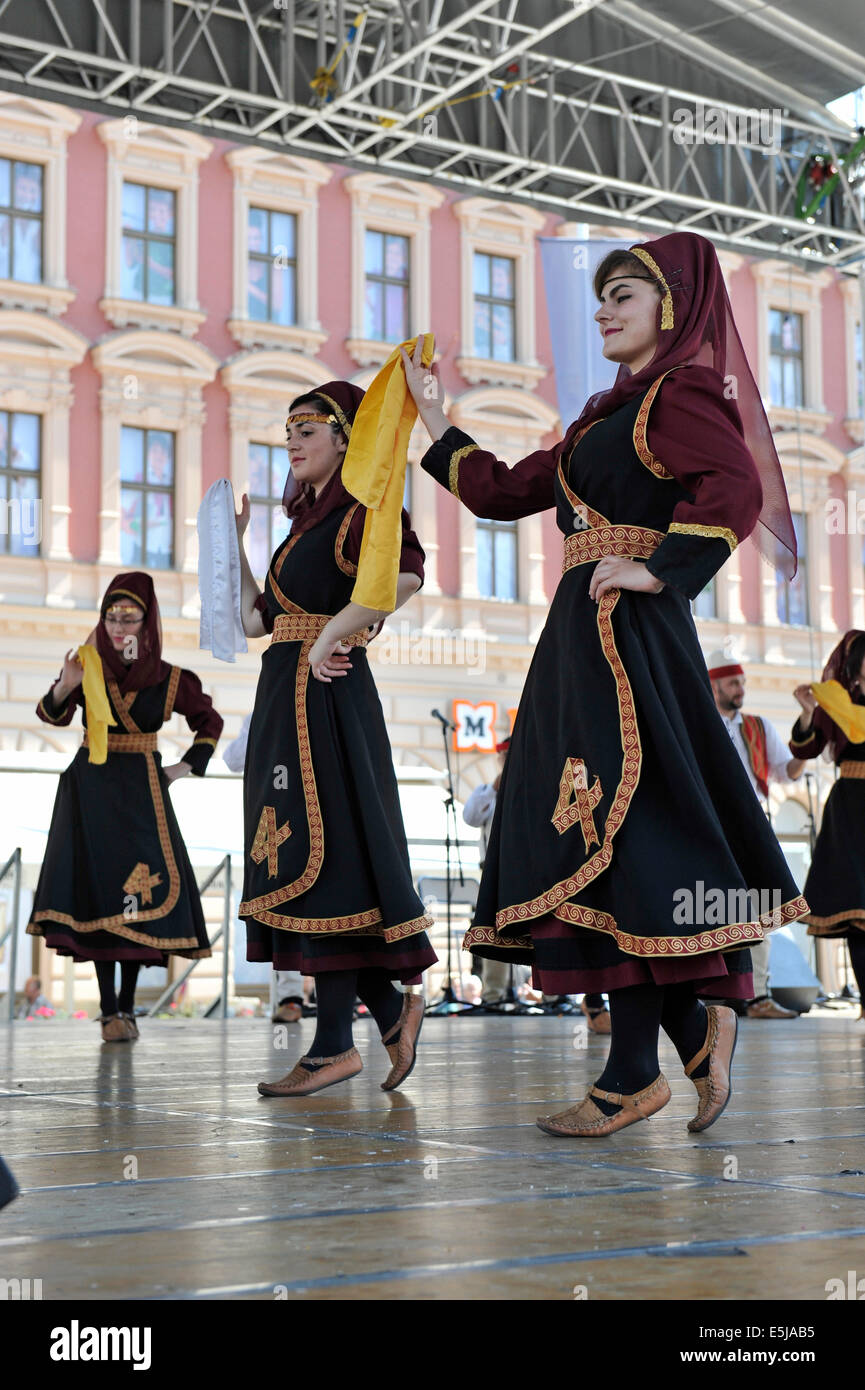
Conclusion
Reflection on the Rich Cultural Heritage of Albania
Albania’s cultural heritage is a vibrant tapestry woven from history, tradition, and diversity. From breathtaking festivals to captivating handicrafts, the nation’s customs reflect a resilient spirit and a deep-rooted connection to its past. My experiences there revealed how these cherished traditions continue to shape daily life, creating a unique atmosphere filled with warmth and authenticity.
Appreciation for Albanian Customs and Traditions
As I navigated the streets of Albania, I found myself appreciating the depth and richness of its customs. Engaging with the locals, I learned that each tradition serves a purpose, fostering community and preserving identity. It’s a reminder of the beauty of cultural heritage; it connects us all, encouraging us to celebrate and respect the diverse traditions that define humanity.

